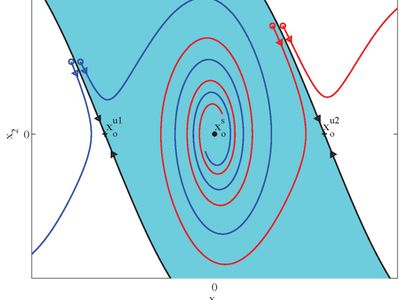Denna kurs behandlar elkraftsystemets stabilitet och styrning. I kursen presenteras olika matematiska modeller för att beskriva elkraftsystemets dynamik och analysera instabiliteter. Vidare presenteras och implementeras olika regleralgoritmer för att förbättra elkraftsystemets stabilitet.
EG2110 Stabilitet och styrning av elkraftsystem 7,5 hp

Kursen behandlar avancerade metoder för analys av kraftsystemets dynamik, stabilitet och kontroll. Olika instabiliteter i kraftsystemet kommer att presenteras och diskuteras. Dessutom presenteras olika styralgoritmer för att förbättra kraftsystemets stabilitet.
Information per kursomgång
Information för VT 2027 Start 2027-01-12 programstuderande
- Studielokalisering
KTH Campus
- Varaktighet
- 2027-01-12 - 2027-03-12
- Perioder
VT 2027: P3 (7.5 hp)
- Studietakt
50%
- Anmälningskod
11936
- Undervisningsform
Normal Dagtid
- Undervisningsspråk
Engelska
- Kurs-PM
- Kurs-PM är inte publicerat
- Antal platser
Min: 5
- Målgrupp
- Sökbar för alla masterprogram under förutsättning att kursen kan ingå i programmet.
- Planerade schemamoduler
- [object Object]
- Schema
- Schema är inte publicerat
Kontakt
Kursplan som PDF
Notera: all information från kursplanen visas i tillgängligt format på denna sida.
Kursplan EG2110 (VT 2022–)Innehåll och lärandemål
Kursinnehåll
Lärandemål
Efter godkänd kurs ska studenten kunna
1. skapa matematiska modeller för att beskriva dynamiken hos elkraftsystem
2. baserat på de härledda matematiska modellerna tillämpa olika grundläggande metoder för att
a) studera och analysera instabiliteter i elkraftsystem
b) förbättra elkraftsystemens stabilitet baserat på grundläggande kontrollalgoritmer
c) beskriva och analysera inverkan av integrering av förnybar energi på dynamik och stabilitet hos elkraftsystem
3. numeriskt utföra det andra lärandemålet genom att använda MATLAB och presentera och diskutera erhållna numeriska resultat.
Kurslitteratur och förberedelser
Särskild behörighet
- Kunskaper i analys av elkraftsystem, 6 hp, motsvarande slutförd kurs EG2100.
- Kunskaper i reglerteknik, 6 hp, motsvarande slutförd kurs EL1000/EL1110.
- Kunskaper i numeriska metoder och grundläggande programmering, 9 hp, motsvarande slutförd kurs SF1519.
Kurslitteratur
Examination och slutförande
Betygsskala
Examination
- PROJ - Projekt, 7,5 hp, betygsskala: A, B, C, D, E, FX, F
Examinator beslutar, baserat på rekommendation från KTH:s handläggare av stöd till studenter med funktionsnedsättning, om eventuell anpassad examination för studenter med dokumenterad, varaktig funktionsnedsättning.
Examinator får medge annan examinationsform vid omexamination av enstaka studenter.
När kurs inte längre ges har student möjlighet att examineras under ytterligare två läsår.
Examinator
Etiskt förhållningssätt
- Vid grupparbete har alla i gruppen ansvar för gruppens arbete.
- Vid examination ska varje student ärligt redovisa hjälp som erhållits och källor som använts.
- Vid muntlig examination ska varje student kunna redogöra för hela uppgiften och hela lösningen.
Ytterligare information
Kursrum i Canvas
Ges av
Huvudområde
Utbildningsnivå
Övrig information
I denna kurs tillämpas EECS hederskodex, se: http://www.kth.se/eecs/utbildning/hederskodex.